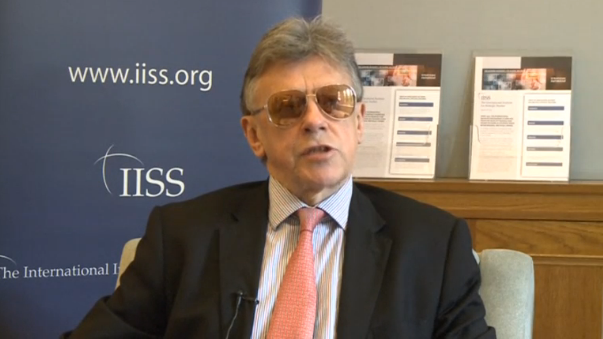
(Courtesy CCTV) — The UK risks losing the opportunity for international cooperation in the fight against terrorism should it decide to leave the European Union, anti-terrorism expert Nigel Inkster said on Tuesday.
Inkster is a former Director of Intelligence and Operations for MI6 and is now Director of Future Conflict and Cyber Security.
He said staying with the EU will help Britain maintain its traditional relations with EU partners in intelligence sharing, especially for countering terrorism.
“The biggest development has been the exchange of these large data sets and I’m talking here about travel information, I’m talking about financial information, telephone communication records, other forms of communication records. All of which the intelligence services of Europe need in order to identify and narrow down their focus on particular targets and individuals of concern. These datasets are shared through European legislation, and if the United Kingdom were to leave Europe then it would not automatically have access to these databases, it would have to renegotiate them,” said Inkster.
The UK has also gained from the cooperative work of EU countries, who in recent years have made increased efforts in compiling and analyzing data to address potential terrorist threats against the continent. If the UK chooses to leave the EU, this benefit will be lost. Inkster believes the UK needs to work carefully to protect this mechanism.
“There has been a tendency to take for granted the era of almost unprecedented peace and security that Europe, or certainly Western Europe has enjoyed for the last 70 years. That state of affairs is not some natural phenomenon, it’s something that needs to be worked at. There is also a concern I think about the strength and durability of the transatlantic relationship particularly if, as is eminently possible, we see the US heading back in, if not an isolationist direction, a more detached approach to engagement in the world,” he said.
Inkster also noted Britain’s close information exchanges with the EU in the years of the Blair administration. But in recent times the somewhat semi-detached approach has already frustrated the UK’s EU partners. Even if the UK were to stay, Inkster warns there will still be political concerns and believes the ruling Conservative party may struggle in the aftermath of Thursday’s vote.
“But I think that in the event of a Remain victory, we’re still going to see some very, very difficult and complex politics within the UK. It’s hard to see whether the Conservative party in particular will be able to recover its unity and sense of purpose after an event of this kind. I think that will be in the short term probably the key factor that will play out,” said Inkster.








